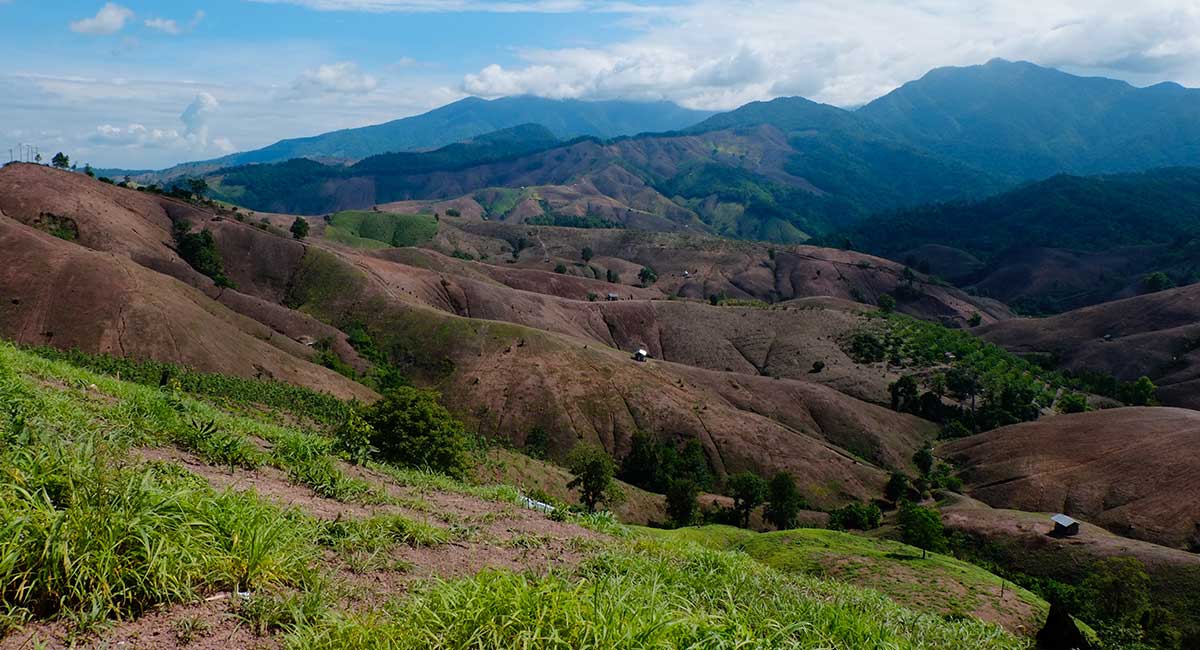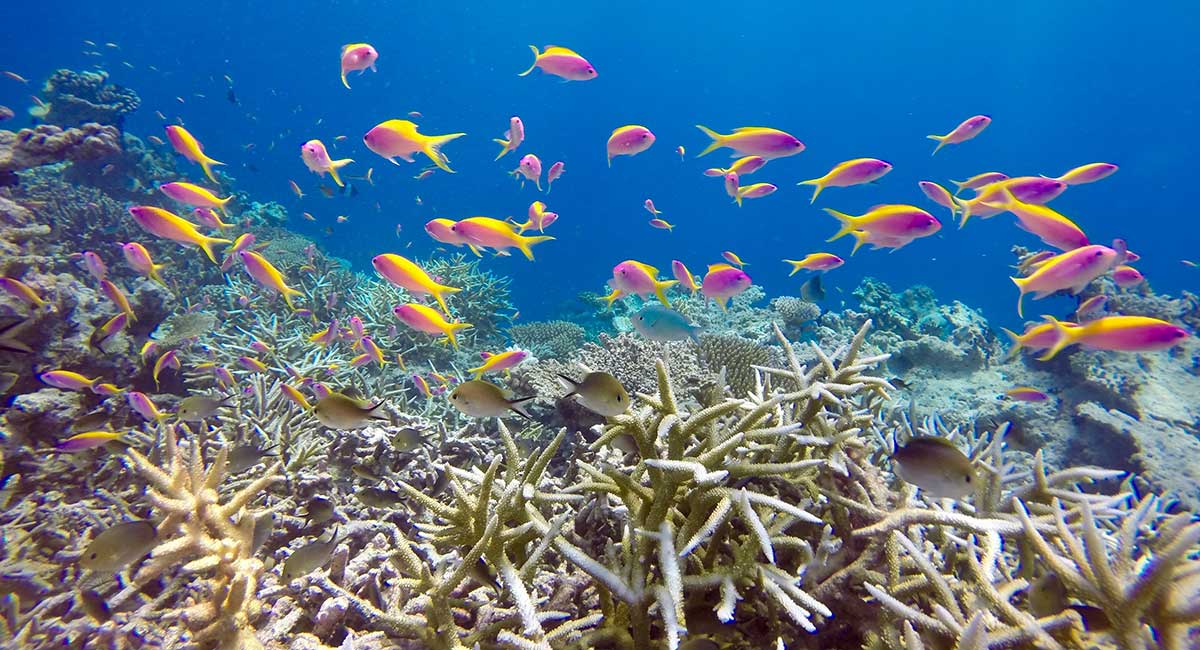What is nature positive tourism?
Responsible Travel aim to contribute to a nature positive world by 2030. We believe that nature positive tourism will play a vital role in addressing the global biodiversity crisis – and the subsequent impacts that the ongoing, dramatic loss of our wild spaces is having on our climate. But what is nature positive tourism? And why do we believe it’s the next necessary step for all tourism businesses, not just eco tours or wildlife safaris? Our CEO and Co-Founder Justin Francis explains:

Land use change
From mangrove forests cleared to make way for luxury beach resorts to swathes of Amazon rainforest cleared for intensive meat production - so we can eat a steak on vacation – tourism has a long track record of degrading previously nature-rich land.
Pollution
In 2021, a report commissioned by local residents in Amsterdam showed cruise ships idling their engines in port was equivalent to 31,000 extra trucks driving a lap of the city each day. Pollution isn’t limited to the air however. Sewage and waste water from coastal hotels damage delicate off-shore coral reefs and noise and light-pollution from hotel complexes and marinas can disturb the reproduction cycles of native wildlife.
Climate change
It has been estimated that left unchecked, aviation could account for over a quarter of the world’s carbon budget by 2050. Currently, if it was a country, aviation would be the 7th largest emitter of CO2 in the world, just behind Germany. Tourism has a hefty carbon footprint – and is playing a significant role in the ongoing climate crisis. As climate changes, so do the environments in which wildlife thrive; water becomes too deep or too warm for corals to survive, while flooding or heatwaves make food sources scarce.
Over-exploitation
When tourism takes too much - whether it is water from already over-stretched aquifers, to demand for energy – the results can be catastrophic. Roads are built through delicate ecosystems, coral reefs are damaged when too many people are snorkelling or diving around them or wildlife – whales, dolphins or nesting birds for example - becomes stressed when we try to get too close for that perfect photograph.
The invasion of non-native species
Not only tourists travel on vacation. Non-invasive species are estimated to cost the UK economy over £2bn each year. Species such as the Quagga Mussel or Japanese Knotweed, which have hitched a ride in the ballast water of cruise ships, on the soles of boots or on the hulls of boats, decimate ecosystems and push more fragile native species to extinction. Studies have shown that the incidence of non-native species is higher in areas with high levels of tourism.

Nature sequesters about 50% of man-made carbon emissions each year. That nature is kept intact is a key the presumption of the climate models and budget being used to meet the Paris Agreement. Without preserving nature, we will not meet our climate goals.
Degrading our wild spaces leaves us vulnerable too. Let’s use the example of mangrove forests again. When we clear them to create cruise ship ports, or luxury beach resorts we not only lose their power to absorb carbon, but we leave our coastline at risk of storm surges and erosion. Without nature to provide a buffer we face the full force of these extreme events.

Why should we care about biodiversity?
Biodiversity is in crisis. Since 1970, the world’s wildlife populations have plummeted by two-thirds. We are losing habitats, wild spaces and natural resources at a staggering rate, with dire consequences for our climate, food security and health.What is nature positive tourism?
Quite simply, nature positive vacations are those which directly contribute to, and advance, the protection of habitats and wildlife, and support the re-wilding of the planet’s natural spaces. Responsible Travel aim to contribute to a nature positive world by 2030, meaning all vacations available on our site will not only not do any harm to wildlife and habitats, but actively leave them with more protection and support.So, you’re just talking about safaris and wildlife vacations?
No, we’re talking about all forms of tourism, from city breaks to cycling trips, beach breaks to safaris. Just 7% of vacations we take focus on wildlife and nature positive tourism needs to be much more wide reaching. All tourism is reliant on nature – from the clean water you drink to the climate and views you enjoy - and nature is impacted by all types of tourism. We need to start changing the way we think about nature on our vacations, and the impact we are having.How is tourism driving biodiversity loss?
There are five key threats to nature worldwide and all are endemic within the tourism industry.Land use change
From mangrove forests cleared to make way for luxury beach resorts to swathes of Amazon rainforest cleared for intensive meat production - so we can eat a steak on vacation – tourism has a long track record of degrading previously nature-rich land.
Pollution
In 2021, a report commissioned by local residents in Amsterdam showed cruise ships idling their engines in port was equivalent to 31,000 extra trucks driving a lap of the city each day. Pollution isn’t limited to the air however. Sewage and waste water from coastal hotels damage delicate off-shore coral reefs and noise and light-pollution from hotel complexes and marinas can disturb the reproduction cycles of native wildlife.
Climate change
It has been estimated that left unchecked, aviation could account for over a quarter of the world’s carbon budget by 2050. Currently, if it was a country, aviation would be the 7th largest emitter of CO2 in the world, just behind Germany. Tourism has a hefty carbon footprint – and is playing a significant role in the ongoing climate crisis. As climate changes, so do the environments in which wildlife thrive; water becomes too deep or too warm for corals to survive, while flooding or heatwaves make food sources scarce.
Over-exploitation
When tourism takes too much - whether it is water from already over-stretched aquifers, to demand for energy – the results can be catastrophic. Roads are built through delicate ecosystems, coral reefs are damaged when too many people are snorkelling or diving around them or wildlife – whales, dolphins or nesting birds for example - becomes stressed when we try to get too close for that perfect photograph.
The invasion of non-native species
Not only tourists travel on vacation. Non-invasive species are estimated to cost the UK economy over £2bn each year. Species such as the Quagga Mussel or Japanese Knotweed, which have hitched a ride in the ballast water of cruise ships, on the soles of boots or on the hulls of boats, decimate ecosystems and push more fragile native species to extinction. Studies have shown that the incidence of non-native species is higher in areas with high levels of tourism.

How does nature loss impact climate change?
The biodiversity crisis and the climate crisis are inextricably interlinked. Without addressing the former we won’t be able to mitigate the latter. Our forests, oceans, peat bogs, grasslands and healthy soils sequester (absorb) carbon from our atmosphere, when these disappear we undermine nature’s ability to respond to and regulate greenhouse gases and intensify the effects of climate change.Nature sequesters about 50% of man-made carbon emissions each year. That nature is kept intact is a key the presumption of the climate models and budget being used to meet the Paris Agreement. Without preserving nature, we will not meet our climate goals.
Degrading our wild spaces leaves us vulnerable too. Let’s use the example of mangrove forests again. When we clear them to create cruise ship ports, or luxury beach resorts we not only lose their power to absorb carbon, but we leave our coastline at risk of storm surges and erosion. Without nature to provide a buffer we face the full force of these extreme events.




